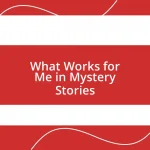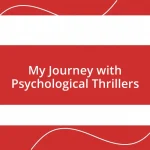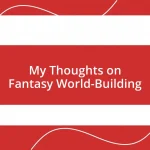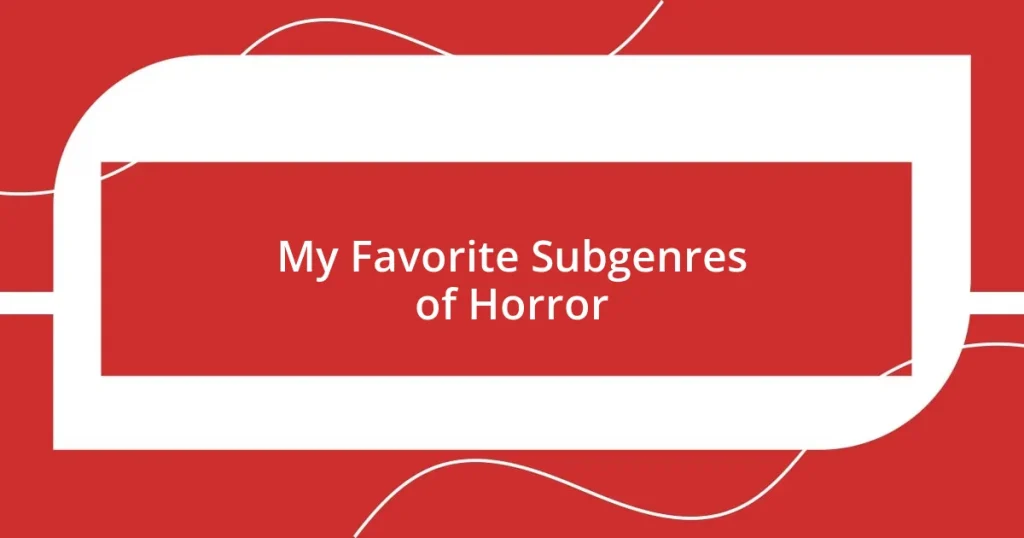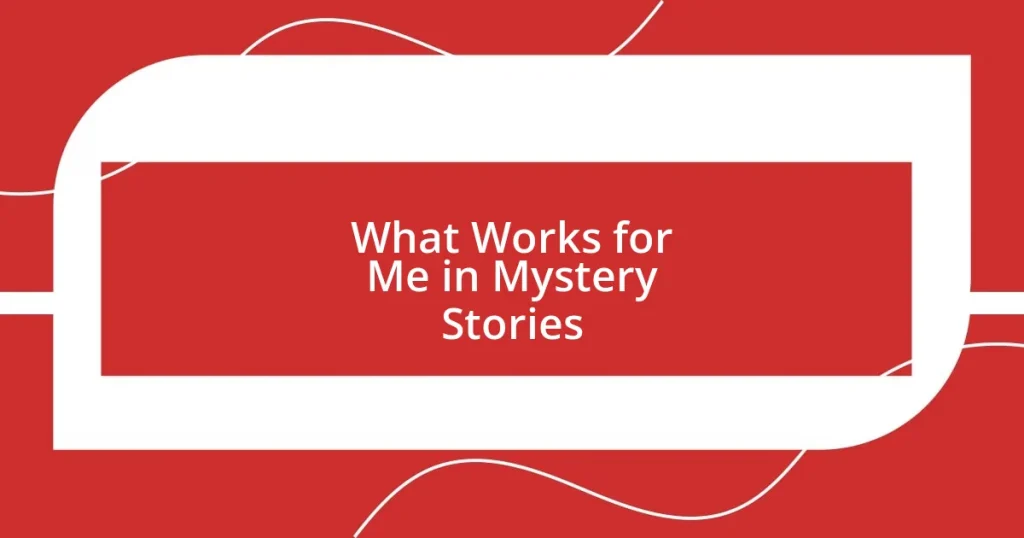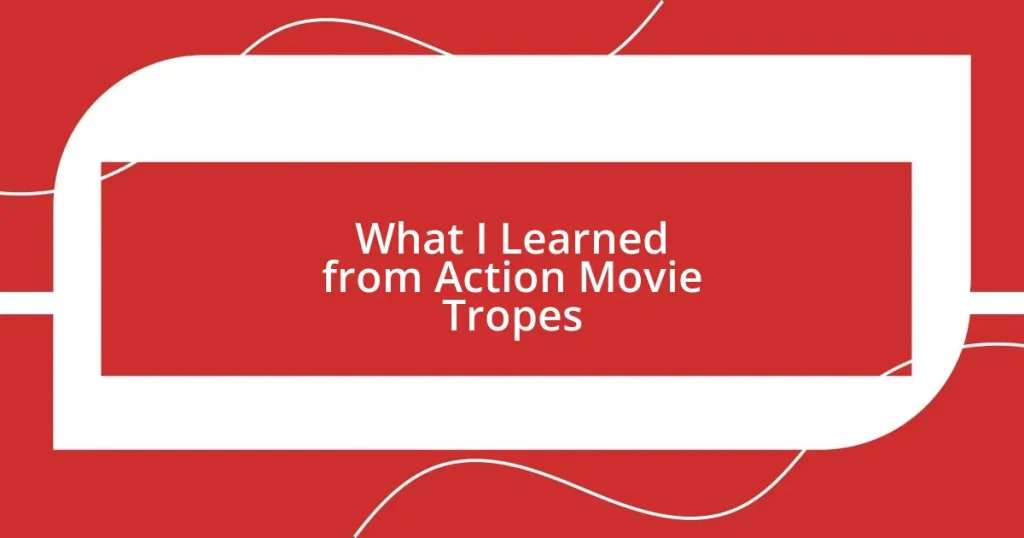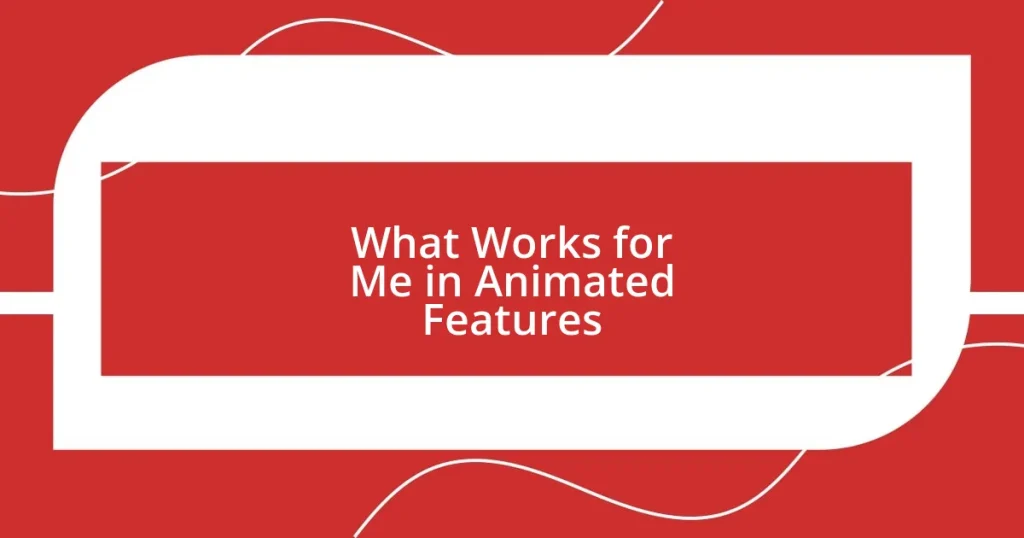Key takeaways:
- Horror encompasses various subgenres, each reflecting different societal fears and personal anxieties, such as psychological horror and folk horror.
- Key elements in horror subgenres include emotional manipulation, character development, and themes of violence or the supernatural, offering unique experiences to viewers.
- Personal favorites among horror subgenres often include psychological horror for its deep exploration of the human mind, body horror for its transformation themes, and Lovecraftian horror for its captivating unknowns.
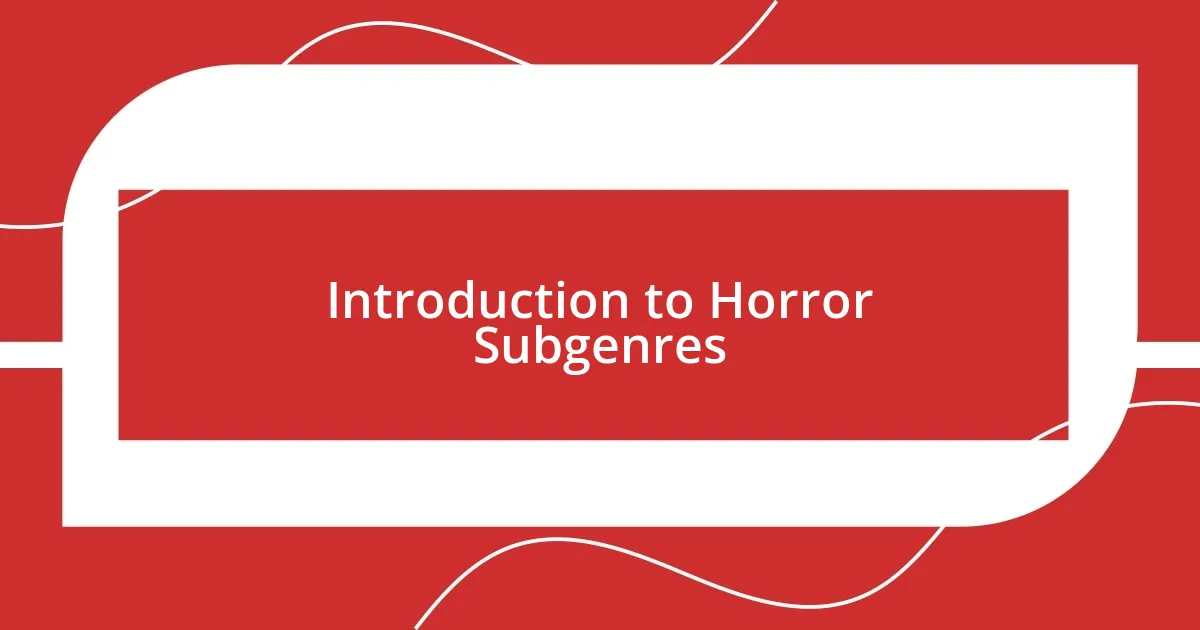
Introduction to Horror Subgenres
Horror, as a genre, isn’t just a one-size-fits-all experience; it’s a tapestry woven from numerous subgenres, each offering its own unique thrills and chills. I remember the first time I stumbled upon psychological horror—films like “The Shining” completely altered my perception of fear, inviting me to delve into the darker corridors of the human mind. What is it about the unseen that terrifies us more than anything that’s right in front of us?
Exploring horror subgenres allows us to uncover the diverse ways in which fear can manifest. From supernatural hauntings to the visceral intensity of body horror, each subgenre taps into different aspects of our psyche. For instance, after watching a slasher film, I often find myself reflecting on the nature of violence and what it means for humanity—it’s both disturbing and fascinating.
Delving deeper into these classifications, we see how they mirror our collective anxieties and cultural contexts. Take folk horror, for example; it draws from ancient traditions and fears about the unknown lurking within our own communities, much like the tales my grandmother used to share during stormy nights. Isn’t it intriguing how stories from different subgenres resonate with our individual experiences, captivating us and sometimes even reflecting our hidden fears?
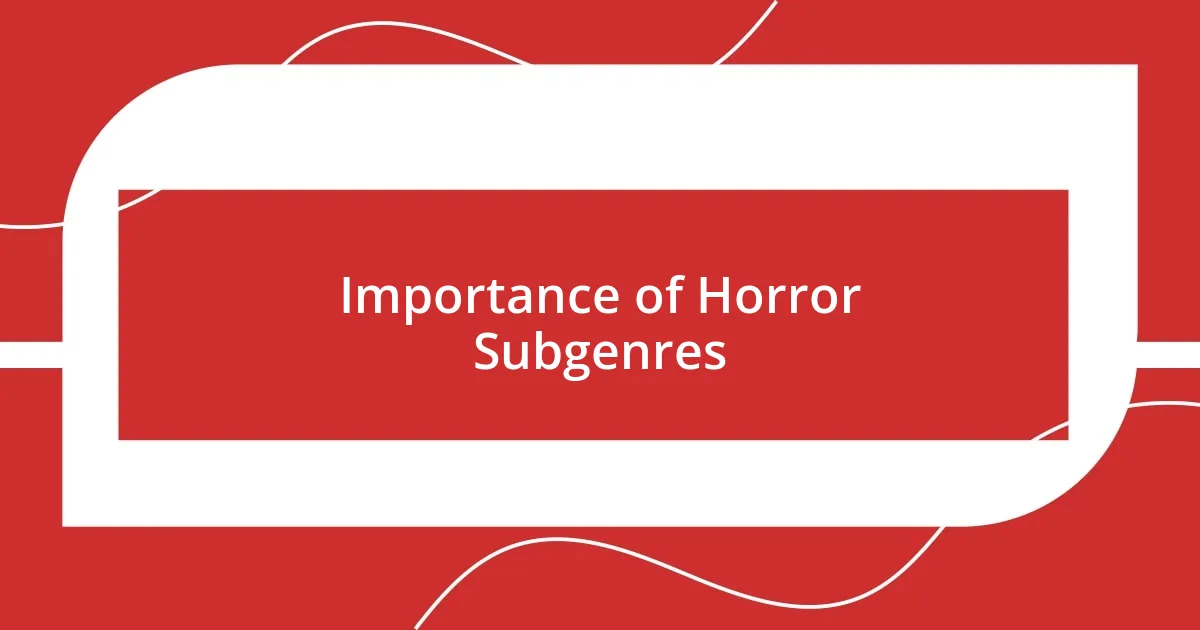
Importance of Horror Subgenres
Understanding the importance of horror subgenres is like peeling back layers of an onion; each layer reveals new flavors of fear. I often find myself gravitating toward psychological horror, as it doesn’t rely solely on jump scares. Instead, it lingers, making my heart race long after the credits roll. This type of horror nudges at real-life anxieties, reflecting our deepest insecurities.
- Each subgenre serves as a mirror to societal fears, such as:
- Zombies – expressing our dread of societal collapse and loss of control.
- Found footage – blurring the lines between reality and fiction, stressing our distrust of media.
- Supernatural – tapping into our fear of the unknown, revealing our vulnerabilities against forces we can’t comprehend.
- Folk horror – echoing primal fears tied to our heritage, often evoking nostalgia intertwined with dread.
Exploring these subgenres not only broadens our understanding of fear but also enriches our appreciation of storytelling itself. I frequently reflect on how much a film can say about the context it emerges from, and that always keeps me coming back for more.
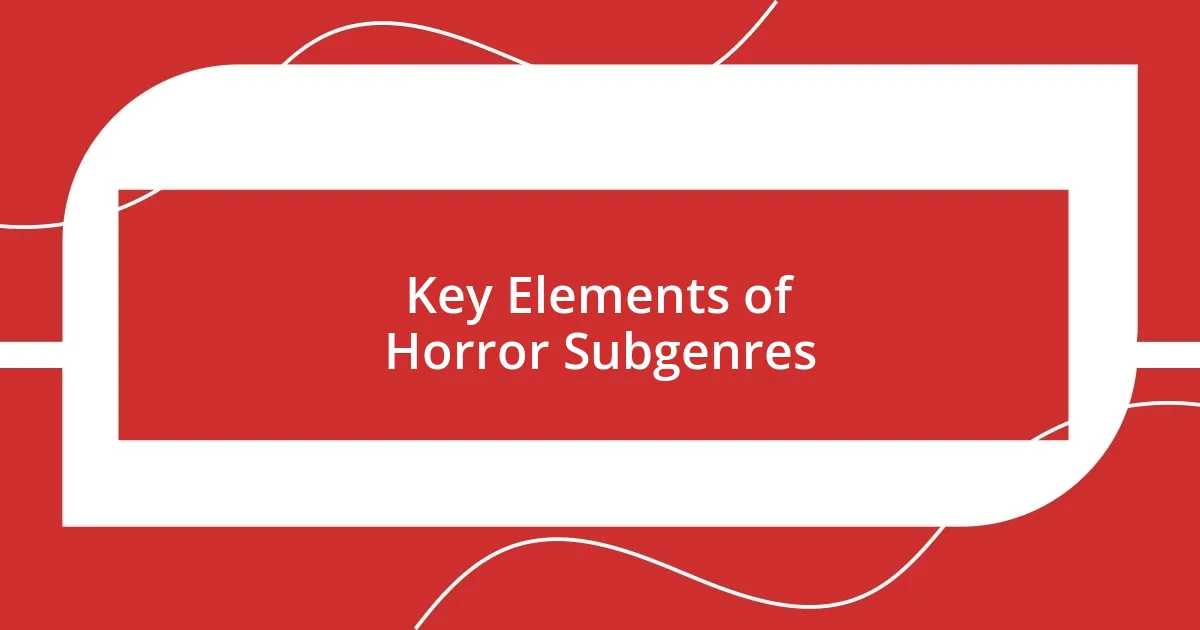
Key Elements of Horror Subgenres
The key elements of horror subgenres lie in how they manipulate our emotions and perceptions of fear. For instance, in supernatural horror, the presence of ghosts or otherworldly entities plays a crucial role in unsettling the audience. I still remember that chilling moment in a classic ghost story where the doors creaked open without any explanation—that haunting ambiguity gets under your skin. It’s fascinating how these elements allow viewers to confront their own fears in a controlled environment.
In contrast, psychological horror relies heavily on character development and the internal struggles of its protagonists. This subgenre often thrusts viewers into a dark psychological landscape, inviting us to explore a character’s disturbing descent into madness. I can easily recall the tension and unease I felt while watching a film where everything seemed normal until the protagonist’s perception of reality began to fracture. Watching that unraveling made me question my own grip on sanity, a true testament to the power of this subgenre.
Notably, slasher horror takes a different route, focusing on visceral violence and the archetype of the unstoppable killer. The element of suspense and the inevitable chase create a unique adrenaline rush, drawing me into a world where survival hinges on quick thinking. I can vividly remember a late-night movie marathon where I felt my heart race as characters made crucial decisions that led to their fate. This active engagement keeps audiences on the edge of their seats, highlighting the thrill of fear.
| Subgenre | Key Elements |
|---|---|
| Supernatural | Ghosts, supernatural entities, and tension from the unknown. |
| Psychological | Character development, internal conflicts, and a descent into madness. |
| Slasher | Visceral violence, suspense, and the hunt for survival. |
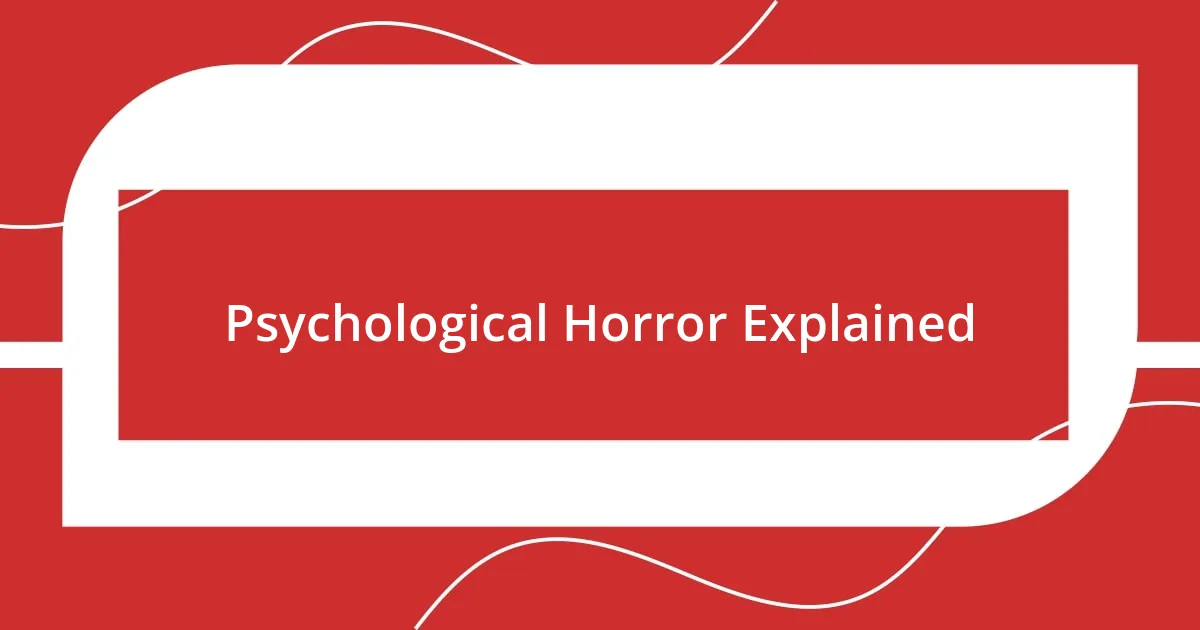
Psychological Horror Explained
Psychological horror, in my experience, is uniquely unsettling because it delves into the complexities of the human mind. Rather than relying on external monsters or violent encounters, it subtly exposes our internal fears and conflicts. I often find myself pondering: what if the real terror lies not in what we see, but in what we feel and think? This genre invites viewers to confront their own psychological vulnerabilities, which can linger long after the story ends.
Watching a well-crafted psychological horror film feels like stepping into a character’s psyche, often leading to an unsettling reflection of my own thoughts and emotions. I vividly recall a film that unraveled a protagonist’s mental health struggles through a narrative that felt almost too intimate. As the storyline progressed, I realized I was holding my breath, intertwined in their journey of uncertainty and paranoia. It was like peering into my own fears, forcing me to question what reality truly means.
In this subgenre, the manipulation of suspense plays a crucial role. I remember a scene where the protagonist’s shadow seemed to dance unnervingly in the corner of the frame. It’s those small, haunting moments that leave a mark; they elevate the tension and keep the dread alive. It’s fascinating how psychological horror doesn’t just tell a story—it makes you experience every twist and turn. How does it make you feel when you realize the true horror is often within? It’s an experience that flips the script on traditional horror, turning introspection into an unnerving adventure.
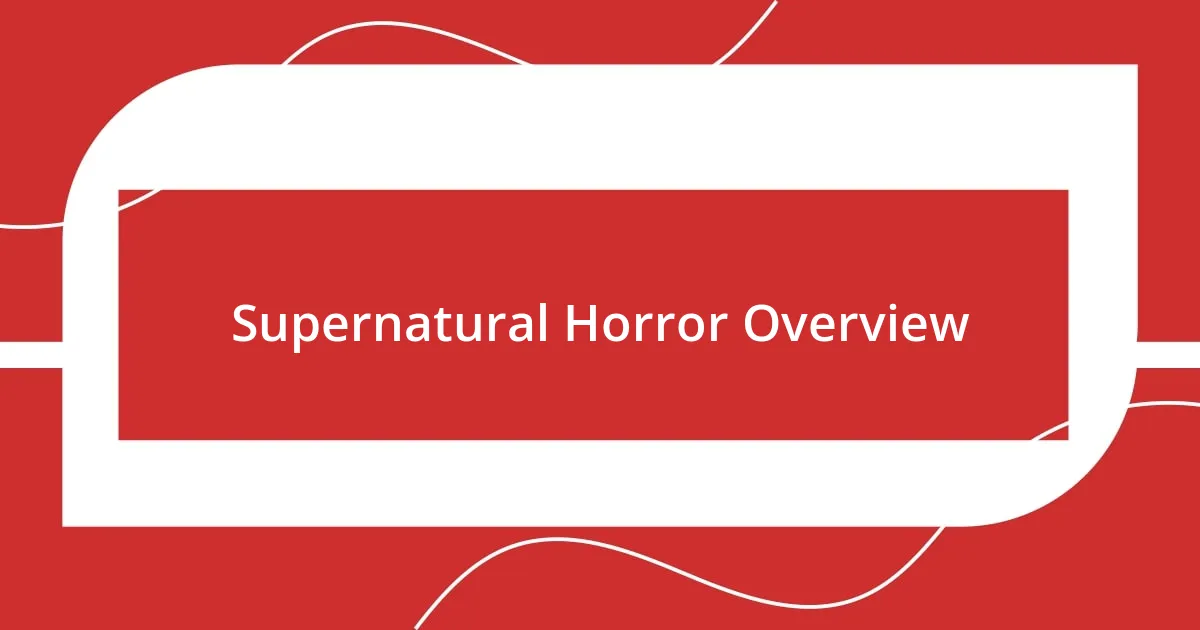
Supernatural Horror Overview
Supernatural horror captivates me because it taps into our primal fears of the unknown. It’s that eerie feeling you get when the lights flicker, or an inexplicable chill creeps down your spine. I still recall watching a film where a child claims to see a ghostly figure in her room—those moments of tension leave you on the edge, grappling with the unsettling possibility that something otherworldly might just be lurking nearby.
What intrigues me most about supernatural horror is how it intertwines myths and legends with our everyday lives. It makes us question whether the tales of spirits and hauntings are purely fiction or if they have a basis in reality. One night, while exploring an old, supposedly haunted hotel, I found myself constantly glancing over my shoulder, half-expecting a ghostly encounter. The adrenaline rush of those whispers of the past creates an immersive experience that lingers long after the credits roll.
At its core, supernatural horror serves as a mirror reflecting our cultural fears. It speaks to the universal dread of death and what lies beyond, leading us to ponder: are we ever truly alone? Each ghost story or supernatural encounter can provoke deep emotional responses, drawing us into a rich tapestry of human belief and anxiety. I often find that these narratives challenge me to confront my own thoughts about mortality and the afterlife, elegantly blurring the lines between reality and myth.

Slasher Genre Characteristics
The slasher genre stands out for its distinctive elements, starting with a relentless killer who typically embodies some form of psychological trauma. I recall the first time I watched “Halloween”—the masked figure of Michael Myers is both terrifying and mysterious. There’s something chilling about how the slasher often stalks their victims, transforming ordinary settings into scenes of horror. Doesn’t it make you question how safe you really feel in your own neighborhood?
Another key characteristic of slashers is the recurring theme of youthful recklessness. In my view, the genre often punishes characters for their moral failings, which can be a bit unsettling but also fascinating. For instance, I distinctly remember the gripping tension in “Scream” when characters discuss the rules of horror movies—it’s that self-awareness that adds layers to the narrative. I found myself thinking: if the characters recognize the clichés, will they be able to escape their fate, or does that make it even more inevitable?
Finally, the violence in slasher films is often graphic and stylized, serving both as a shock tactic and a means to evoke a visceral response from the audience. I remember the first time I saw a particularly brutal scene—the tension in the room was palpable, and even though I was horrified, I couldn’t look away. It’s this juxtaposition of fear and fascination that makes the genre so compelling. So, what draws you in—fear of the killer or the intrigue of their motives? I honestly believe it’s the combination that keeps us returning to this wild ride of suspense.
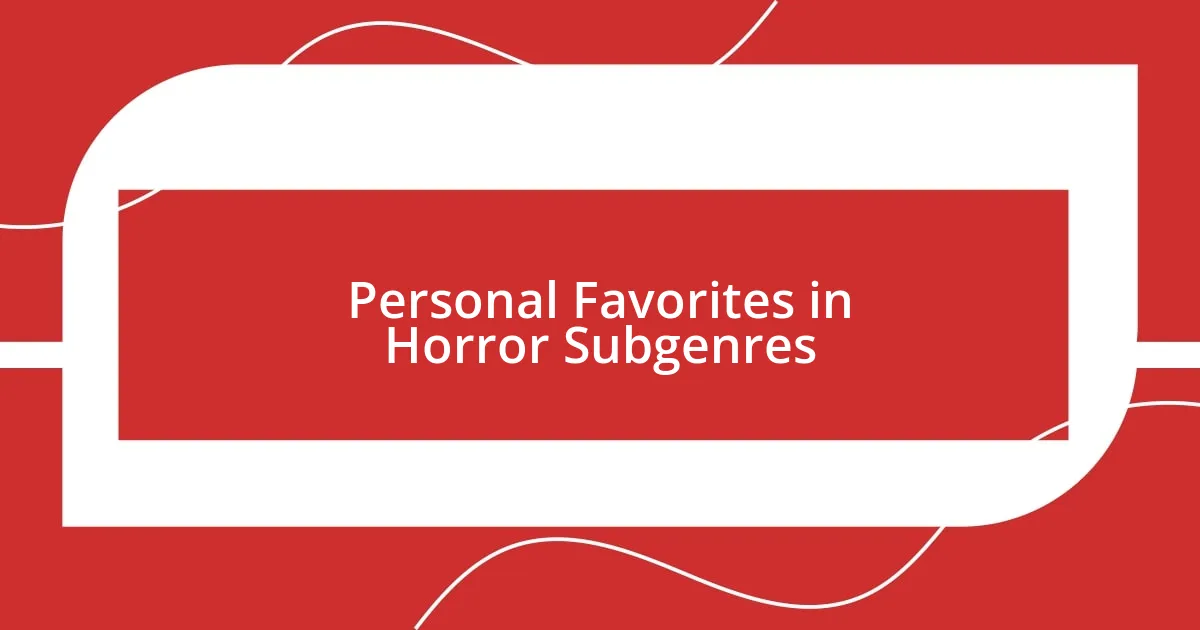
Personal Favorites in Horror Subgenres
Thrilling as they can be, my absolute favorite subgenre has to be psychological horror. I remember the first time I watched “The Sixth Sense” and how it kept me guessing. The real horror lay not in ghosts or gore, but in the emotional turmoil of the characters. There’s a unique tension in this subgenre that dives deep into the human psyche, exploring themes of guilt, trauma, and the blurred line between sanity and madness. How often do we find ourselves confronting our own fears just by observing the characters’ struggles?
Another subgenre that holds a special place in my heart is body horror. The sheer panic that arises when the human form becomes something unrecognizable truly fascinates me. I have vivid memories of watching “The Fly” and feeling both repulsed and morbidly curious about the transformation process. It’s a horrifying reminder of our fragility, stirring emotions that can linger long after the viewing. What does it say about our identity when our bodies betray us? This theme haunts me and prompts deeper contemplation of self and existence.
Lastly, I can’t ignore Lovecraftian horror, which mystifies and terrifies in equal measure. The unknown terrors that lurk just beyond our comprehension captivate me; it fuels my imagination while also striking a genuine chord of fear. I recall reading Lovecraft’s “The Call of Cthulhu” late at night—the sense of impending doom, the realization that there are things out there we simply cannot understand. This subgenre teaches us that sometimes, the greatest fear is the one rooted in uncertainty. Who among us hasn’t felt that nagging dread of what might be hidden just outside the periphery of our reality?
